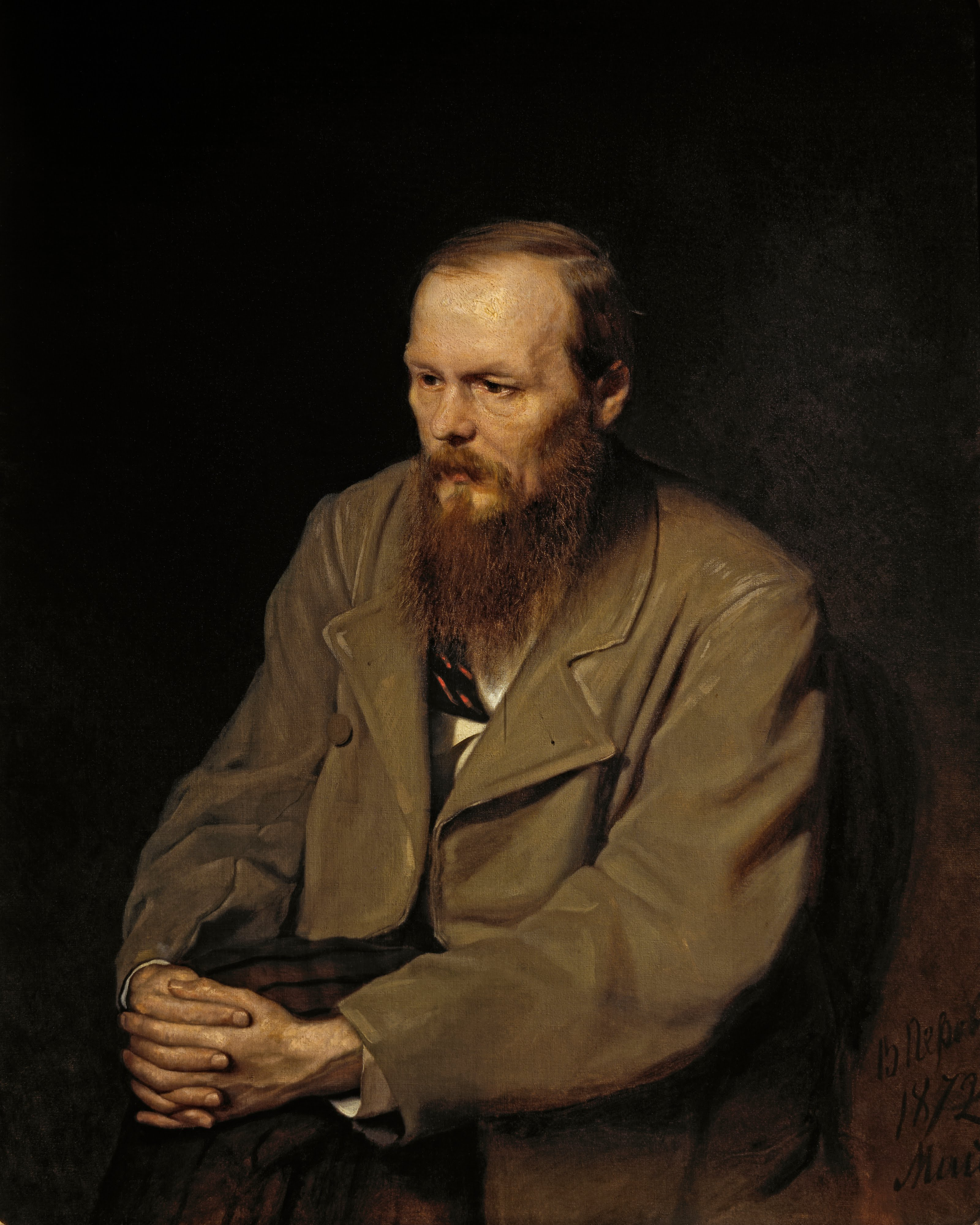Fyodor Dostoyevsky’s childhood led his great mind into the only option for its escape: revolution. His father, a raging alcoholic, was a retired military surgeon who moved his family into a small apartment on the grounds of Moscow’s Mariinsky Hospital for the Poor, where he practiced. The hospital was surrounded by bitter poverty such as an orphanage for the abandoned and an asylum for the insane. Such conditions would be forever impressed upon the young Fyodor. Suffering from epilepsy himself, Fyodor would defy his parents’ wishes and explore the hospital gardens, visiting with patients and building a sense of hope out of such bitterness.
At age 16, after the death of his mother, Dostoyevsky was sent to military engineering school, and his father died soon after. He fell in love with literature and suffered through mathematics enough to manage a commission, eventually becoming a lieutenant. Dostoyevsky left the military in 1843 and turned fulltime to literature, translating Balzac and creating his own fiction. His first published work came in 1846 as a novella entitled Poor Folk, and Dostoyevsky was thrown into literary fame. Fame was fleeting; his next work, The Double, met with frowns of disappointment.
His explorations of schizophrenia and literary experimentation were given up after The Double, and Dostoyevsky pushed himself toward the trials of poverty that he had known so well. He joined the Petrashevsky Circle, a reading and discussion group of progressives in St. Petersburg. While they made some movement, there was no great organization for change beyond theory.
Across Europe in 1848, however, there was much action for change. The Revolutions of 1848 spread across the continent, and Czar Nicholas feared an uprising in Russia. He had easily quashed the 1825 Decembrist Revolt and ended Peter the Great’s ideals of Westernization, instead turning back toward orthodoxy. With challenges to autocracy rising in many other empires, Nicholas decided to end the revolution before it could take place by rounding up any progressively minded intellectual. The Petrashevsky Circle was among the groups arrested and put through public mock execution rituals, displays in which the populace could see the might of the Czar’s will but also his grace at giving reprieves.
Dostoyevsky himself was arrested April 23, 1849, and, on November 16, sentenced to death by firing squad. After the mock execution, he assumed this would be another of the Czar’s displays, and it was generally agreed that he would receive a reprieve. However, due to bureaucratic bungling in the delivery of the reprieve, Dostoyevsky was shot by order of a zealous commander.
Shock settled over St. Petersburg, and Dostoyevsky’s writings spread through the city and, then, the country. Many historians suggest that not all of the writings were his, but his depictions of the lives of serfs and the poor are recognized as genuine. Propaganda or not, the works ignited the Russian people as they discussed around fires and over glasses of vodka. Nicholas, refusing to appear weak, repressed those calling for government apology on what was increasingly viewed as a terrorist assassination.
That spring, Russian Mikhail Bakunin escaped from imprisonment while being handed over to Austrian authorities for his organization of the Dresden Uprising the year before. Aided by Russian revolutionist leaders, the 1850 Rising began as Bakunin arrived and announced the liberation of the serfs. Pandering to Slavophile ideals and collectivism, the bureaucracy was overthrown, aristocracy and Jewish farmers alike around the country were slaughtered, and Nicholas was violently ushered off the throne in favor of a much weakened Alexander II constitutionally bound by a council of advisers, Bakunin among them.
Monarchs in Europe debated sending military aid to the Czar, but renewed troubles with revolts in their own empires kept them from assembling a campaign. New stability would be founded in nationalism, citing the best for one’s people and country. Strong, central leadership struck both the West and Russia, but the return to the mir, or collective village, style of living would create a sharp ideological division between the two. As the West modernized, Russians settled into orthodoxy, ultimately preparing for swift military defeat by Imperial Germany after the turn of the century.
–
In reality, Dostoyevsky received his reprieve. He was exiled to Siberia, being transformed by suffering through new levels of poverty, and then returned to St. Petersburg, writing some of the greatest works in the Russian language, Notes from Underground, Crime and Punishment, and The Brothers Karamazov.

No comments:
Post a Comment